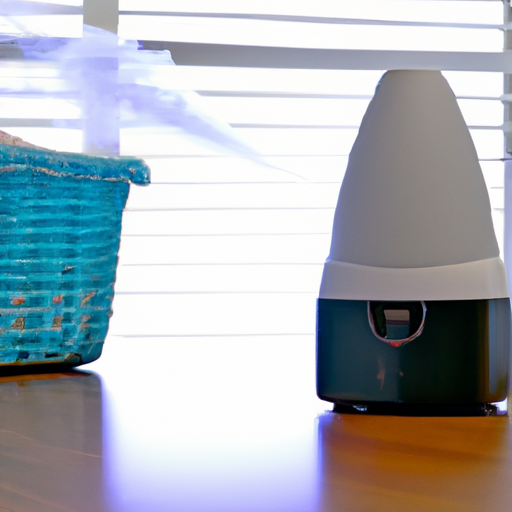If you or a loved one suffers from asthma, finding the right humidifier or dehumidifier can make a world of difference. But with so many options on the market, it can be overwhelming to know where to start. That’s where we come in. In this article, we’ll break down the key factors to consider when choosing a humidifier or dehumidifier for asthma, helping you make an informed decision that promotes a healthier, more comfortable living environment. So say goodbye to stuffy noses and hello to easy breathing – let’s dive into the world of asthma-friendly air treatment!
Factors to Consider
Types of Humidifiers and Dehumidifiers
When choosing a humidifier or dehumidifier, it’s important to understand the different types available. Some common options include cool mist humidifiers, warm mist humidifiers, ultrasonic humidifiers, evaporative humidifiers, whole-house humidifiers, portable dehumidifiers, and whole-house dehumidifiers. Each type has its own benefits and considerations, so it’s important to choose the one that best suits your needs.
Size of the Room
The size of the room where the humidifier or dehumidifier will be used is another important factor to consider. Understanding the square footage of the room is crucial in determining the appropriate capacity of the device. A device that is too small may not effectively humidify or dehumidify the room, while one that is too large may result in excess energy consumption.
Humidification or Dehumidification Needs
Are you looking to humidify or dehumidify your environment? For individuals with asthma, both humidification and dehumidification can play a crucial role in managing symptoms. Humidification can help alleviate dryness in the air, which can irritate the respiratory system, while dehumidification can prevent the growth of mold and dust mites, which can trigger asthma attacks.
Noise Level
If noise is a concern for you, it’s important to consider the noise level of the humidifier or dehumidifier. Some devices offer quiet operation, making them ideal for bedrooms or other areas where maintaining a peaceful atmosphere is important. Look for noise level specifications to ensure the device will meet your needs without causing disturbances.
Maintenance Requirements
Every humidifier or dehumidifier will require regular maintenance. Consider factors such as ease of cleaning, filter replacement, water tank refilling, and drainage options. Some devices may have removable and dishwasher-safe parts, while others may require a more manual cleaning process. It’s important to choose a device that fits your maintenance routine.
Energy Efficiency
Energy efficiency is an important consideration to reduce both environmental impact and long-term costs. Look for humidifiers or dehumidifiers with Energy Star certification, as these devices are designed to meet strict energy efficiency guidelines. Additionally, consider the power consumption of the device to ensure it aligns with your energy-saving goals.
Additional Features
Depending on your personal preferences and needs, there are various additional features to consider. Automatic shut-off can be convenient for safety and energy-saving purposes. A humidistat and hygrometer allow you to monitor and control humidity levels accurately. A night light can provide comfort and visibility in low-light environments. A timer can be helpful for setting specific operation periods. Adjustable mist output allows you to customize the level of humidity. A remote control provides convenient operation from a distance. Lastly, some devices may offer built-in air purification features, which can enhance the overall air quality in your home.
Budget
Setting a budget is always an important consideration when purchasing any appliance. Compare the prices of different humidifiers or dehumidifiers that meet your requirements to find one that fits within your budget. However, it’s also important to consider the long-term costs, such as filter replacements and energy consumption, to ensure you are making a cost-effective choice.
Ease of Use
Consider the ease of use when choosing a humidifier or dehumidifier. Look for devices with simple controls and clear instructions. Some devices may have indicator lights or displays that provide information about humidity levels, filter replacements, or water tank refilling. Choosing a device that is easy to operate and understand will ensure a user-friendly experience.
Brand Reputation
Research and reviews are invaluable resources when choosing a humidifier or dehumidifier. Look for reputable brands that have a track record of producing high-quality devices. Reading reviews from other customers can provide insights into their experiences and help you make an informed decision. Consider factors such as reliability and durability to ensure you choose a device that will last for years to come.
By considering these factors, you can confidently choose a humidifier or dehumidifier that meets your specific needs, reduces asthma triggers, and creates a comfortable and healthy environment in your home. Remember to take into account the size of the room, your humidification or dehumidification needs, noise level preferences, maintenance requirements, energy efficiency, additional features, budget, ease of use, and brand reputation. With careful consideration and research, you can find the perfect device to help manage your asthma symptoms effectively.
